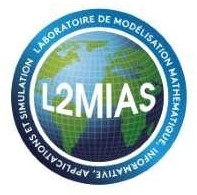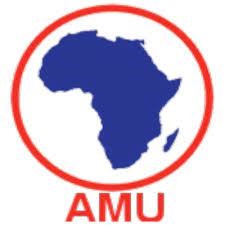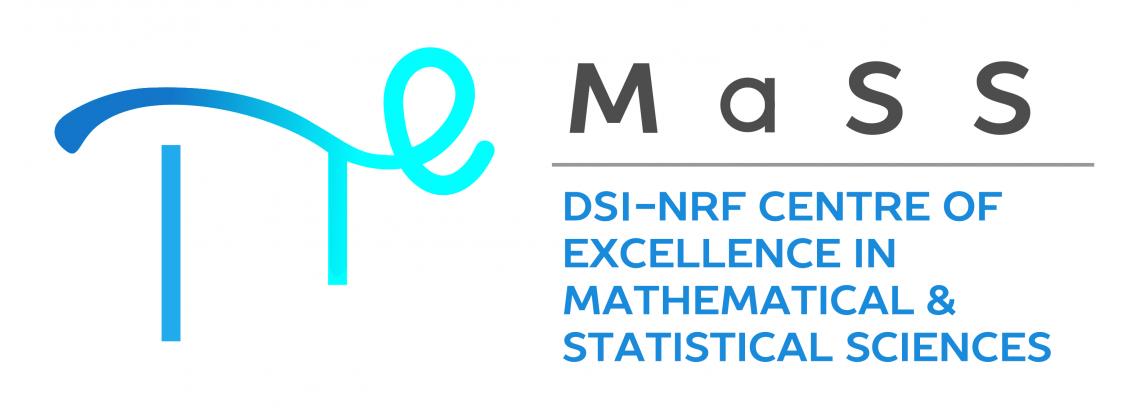3MC Presents:
International Conference on Mathematical Modeling in Biology and Life Sciences
28 February-1 March 2024, NWU, Potchefstroom
Partners
Sponsors
Disclaimer: Opinions expressed and conclusions arrived at are those of the author and are not necessarily to be attributed to the CoE-MaSS.
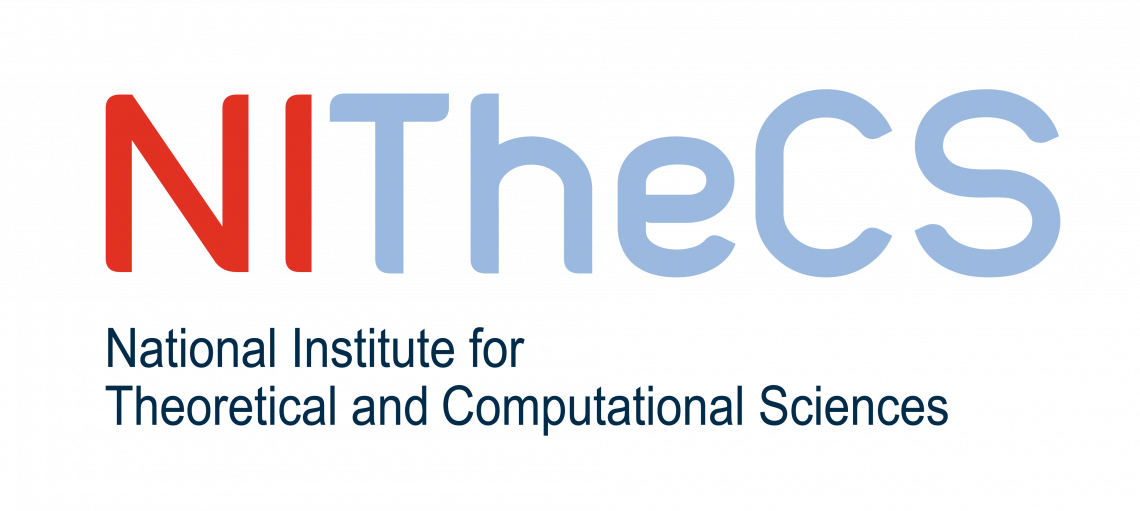
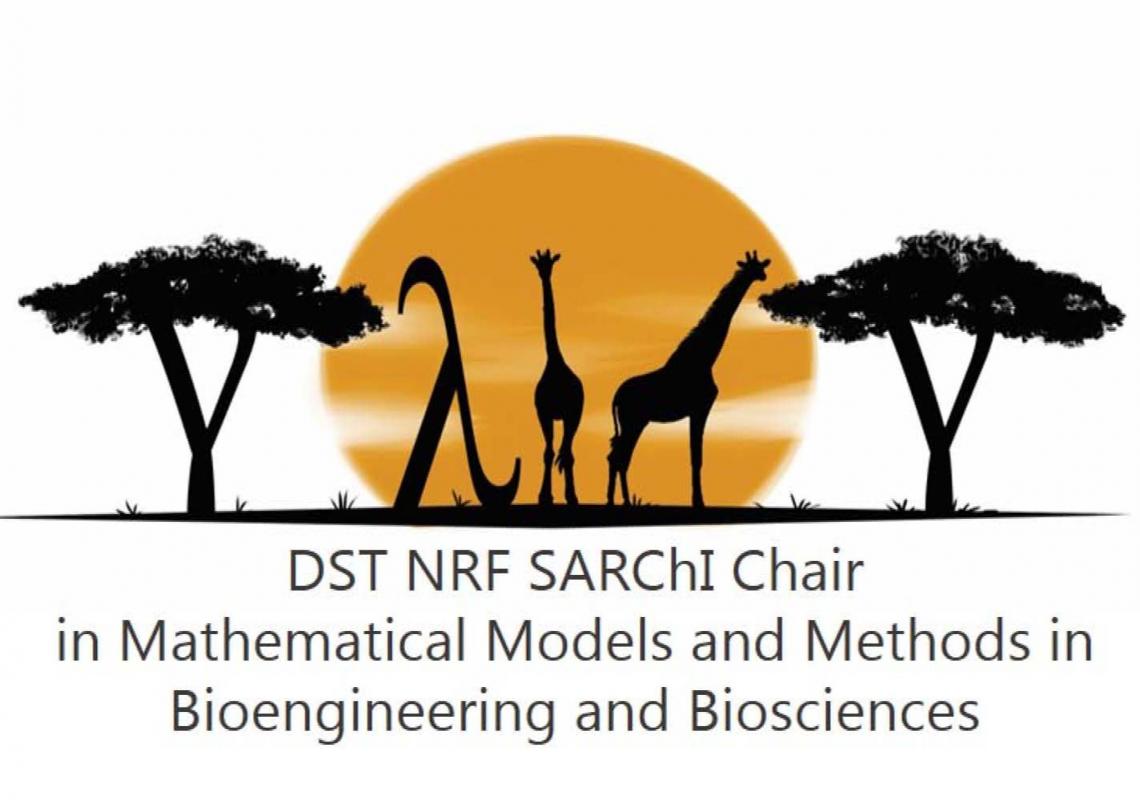
Bios of the plenary speakers
Prof Folashade Agusto

I am a trained applied mathematician based in the department of Ecology and Evolutionary Biology at the University of Kansas; my work focuses on designing novel models to gain insight about emerging and re-emerging infectious diseases of public health importance and how to mitigate the risks they pose to human health.
I have designed and analyzed novel models for diseases like Ebola, avian influenza, bovine tuberculosis, Johnes disease, toxplasmagondii, Chikungunya, and malaria. My current work is on modeling tick-borne diseases across the Great Plains and understanding the role of human behavior on the transmission of COVID-19.
Since 2017 I have been engaged in "mobile training clinic" where we run training workshops in ecology, epidemiology and dynamical system analysis. With seed funds from Centre International en Mathématiques Pures et Appliquées (CIMPA) through the African Mathematical Union we have visited Benin, Nigeria, Senegal and Ghana this summer 2023.
Prof Julien Arino

I am a Professor and 2021-2024 Faculty of Science Research Chair in Fundamental Science with the Department of Mathematics, a member of the Data Science NEXUS and a faculty member of the VADA Graduate Training Program, all at the University of Manitoba. I am also a member of the Canadian Centre for Disease Modelling, the Canadian COVID-19 Mathematical Modelling Task Force and three of the NSERC Emerging Infectious Disease consortium projects (CANMOD, MfPH and OMNI/RÉUNIS).
My research deals primarily with population movement in epidemiology and ecology, with particular interest on the spatio-temporal spread of infectious diseases. In this context, I am interested in two main aspects: the relationship between mobility modalities and the fast global spread of infectious pathogens, as well as the effect of interconnections of public health systems with a variety of health practices. I use mathematical modelling to consider the risk of importation of disease to various public health entities. I have also dabbled with other mathematical biology problems.
Prof Jacek Banasiak
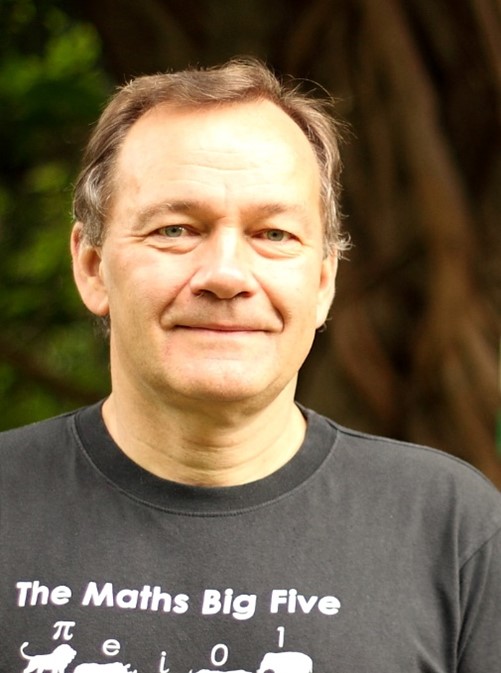
Professor Jacek Banasiak currently holds the DSI/NRF Chair in Mathematical Models and Methods in Biosciences and Bioengineering at the University of Pretoria. He obtained his MSc from the Technical University of Łódź in 1981, his PhD from Strathclyde University in Glasgow in 1989 and his Habilitation (DSc) from the University of Warsaw in 1999. He was awarded the State title of Professor conferred by the President of the Republic of Poland in 2007. He held various positions at the Technical University of Łódź (since 1981), University of KwaZulu-Natal (1992-2015) and the University of Pretoria (since 2016) and was a Visiting Professor at the University of Franche-Comte, France, and at the University of Strathclyde, UK. His research interests are in nonlocal, integro-differential models in kinetic theory, mathematical biology and fragmentation-coagulation theory, asymptotic analysis of multiple scale problems and epidemiological modelling. Prof Banasiak authored or co-authored 5 research monographs and over 145 refereed research papers. He completed supervision/co-supervision of 12 PhD students and over 20 MSc students. In 2012 Prof Banasiak received the South African Mathematical Society Award for Research Distinction, in 2013 he received Cross of Merit (Silver) of the Republic of Poland, in 2022 he received the Minister of Science and Education of the Republic of Poland Award for Scientific Achievements. He was Vice-President of the South African Mathematical Society (2001-2005), Chairman of the South African Committee for the International Mathematical Union (2005-2008), Co-Head of the International Research Laboratory for Applied Research in Semigroups, South Ural State University, Russia (2019-2021) and is a fellow of the African Academy of Sciences (since 2017), member of the Academy of Science of South Africa (since 2006), fellow of the University of KwaZulu-Natal (since 2013), a Research Associate of the National Institute of Theoretical Physics and an Associate Faculty of the African Institute of Mathematical Sciences. With respect to editorial work, he is Editor-in-Chief of Afrika Matematika (Springer), an Advisory Editor of Mathematical Methods for the Applied Sciences (Wiley), Associate Editor of Quaestiones Matematicae, member of Editorial Board of Evolution Equations and Control Theory, Differential Equations and Dynamical Systems (Springer), Issues of Analysis, and of the AIMS Library Series of the Cambridge University Press.
Prof Sandrine Etienne-Manneville
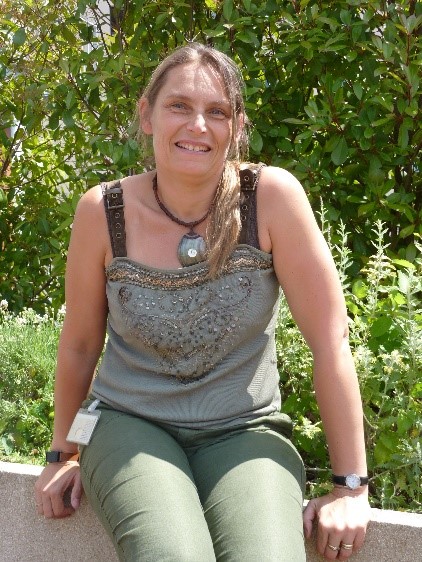
Sandrine Etienne-Manneville is a CNRS research director at the Institut Pasteur, where she heads the Cellular Polarity, Migration and Cancer unit. She studied at the Ecole Normale Supérieure de Paris and holds an agrégation in Life and Earth Sciences. She regularly lectures at universities and engineering schools. At the same time, she obtained a PhD in Immunology, working on the mechanisms by which immune cells enter the central nervous system. After spending 4 years in London studying the migration of astrocytes, nerve tissue cells involved in numerous brain pathologies, she joined the CNRS in 2003. In 2006, she became team leader at the Institut Pasteur, where she continued to study the migration of normal and tumoral astrocytes. Named Chevalier de l'Ordre du Mérite and also elected EMBO member, her work has also been recognized by numerous national and international awards, including the René Turpin award for cancerology from the French science academy in 2022.
Prof Inger Fabris-Rotelli
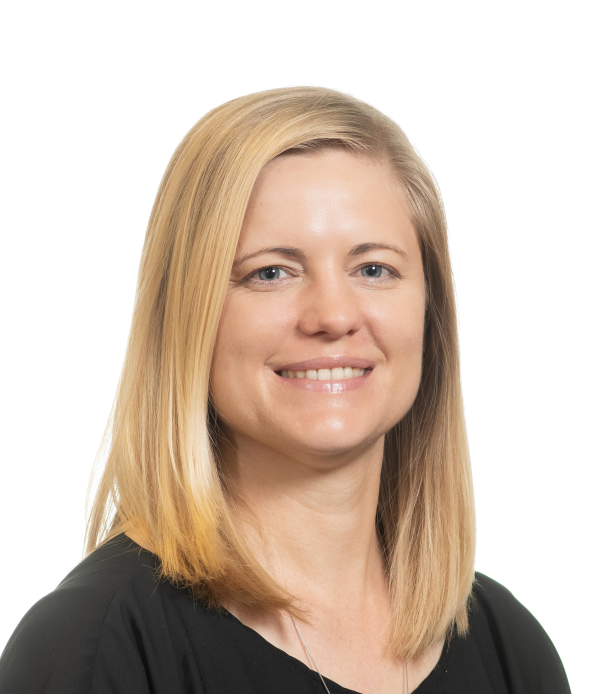
Prof Inger Fabris-Rotelli is currently an associate professor in the Department of Statistics, University of Pretoria. She has been at the Department of Statistics since 2004. She holds a PhD Mathematical Sciences, obtained in 2013, an MSc Applied Mathematics, a double BSc (Hons) in Mathematical Statistics and Applied Mathematics and a BSc Applied Mathematics.
She has supervised 56 honours and 24 Masters students to completion, and is currently supervising 6 honours, 6 Masters and 7 doctoral students, and has a particular passion for postgraduate supervision. She has published 27 peer-reviewed journal articles, 21 peer-reviewed conference proceedings papers and 1 book chapter.
She was on the executive of the South African Statistical Association (SASA) from 2012 – 2018, and from 2019 sits as a director on the ICCSSA (Institute of Certificated and Chartered Statisticians in South Africa) board. She is the current president of SASA and the CEO of ICCSSA. She is also a member of ISI, SIAM and IMS internationally, and the Golden Key Society, SASA, S2A3, SAMS, ICCSSA (registered as a Chartered Statistician from 2019) GISSA, SAMSA, GASA and RLadies Johannesburg co-chair locally. She is a SACNASP council member elected 2021 – 2025.
Her research interests are in spatial statistics and GIS, as well as remote sensing and general image processing, including spatial epidemiology and criminology. She has a number of countrywide research collaboration group, namely SEPIMOD (Spatial Epidemiological Modelling) and StatSNetSA (a capacity development research group for building doctoral supervision skills in academic Statistics in South Africa and further in general supporting the young academics in Statistics in South Africa). Both these groups have resulted in a number of publications, postgraduate student growth and young academic development. She has a National Research Foundation Y2 rating in recognition of her research. Prof Fabris-Rotelli is an Abe Bailey Fellow (2007 tour award), is a 2018 fellow of the TUKS Young Researcher Leadership Program (TYRLP), and was chosen as a BRICS Young Scientist 2020 in Artificial Intelligence.
Prof Jean Lubuma
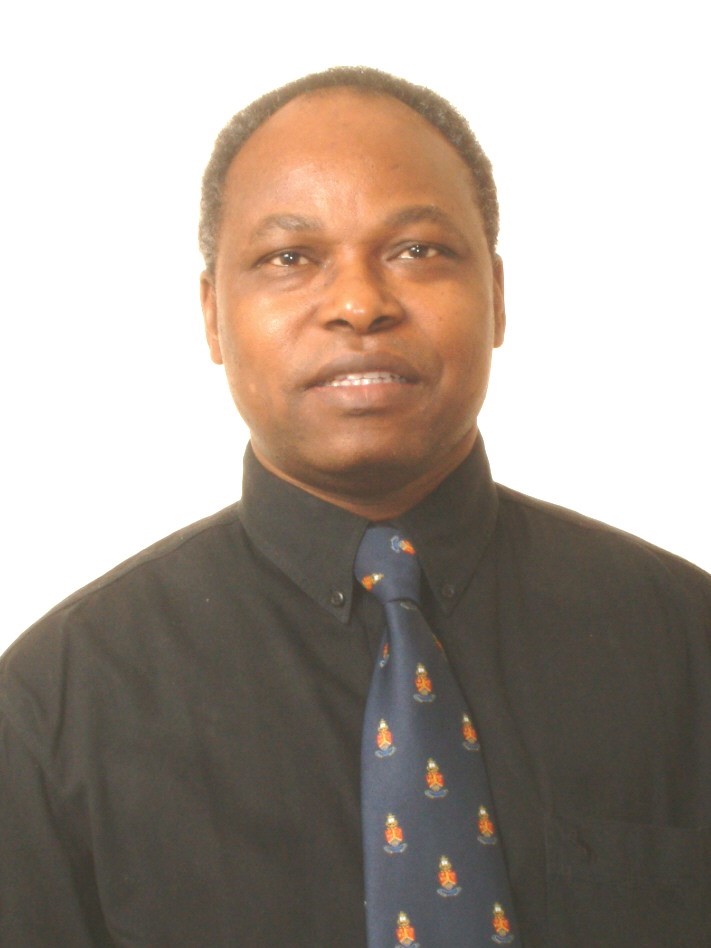
Professor Jean M-S Lubuma received his PhD from the Université Catholique de Louvain in Belgium in 1985 and was a Postdoctoral Fellow at the Abdus-Salam International Centre for Theoretical Physics (ICTP) in Italy from 1989-1991. Since then, he worked and visited many prestigious universities and research institutions. He is currently a Distinguished Professor in the School of Computer Science and Applied Mathematics at the University of the Witwatersrand, Johannesburg. He is also an Emeritus Professor at the University of Pretoria, where he has had a distinguished academic career since 2000. He was Dean of the Faculty of Natural and Agricultural Sciences from 2015-2019. Prior to this, he was the founding Chair Holder of the DST/NRF SARChI Chair in Mathematical Models and Methods in Bioengineering and Biosciences from 2013-2015. He served from 2004-2013 as Head of the Department of Mathematics and Applied Mathematics.
After he joined the University of Pretoria in 2000, Prof Lubuma initiated a very successful research group, which has an excellent track record of outstanding visitors. His research interests include the numerical analysis of ordinary and partial differential equations and integral equations, with the emphasis on differential equation models that occur in engineering, applied science and life science, specifically the epidemiology of human infectious diseases. With time, the visibility of the group has significantly increased thanks to the establishment of more linkages and partnerships with prestigious research centers locally and overseas such as the Centre for Research in Computational and Applied Mechanics-CERECAM (University of Cape Town), the Centre for Agricultural Research for Development-CIRAD
(France), the Bulgarian Academy of Sciences-BAS, and the Simon Levin A. Mathematical, Computational and Modelling Sciences Centre-MCMSC (Arizona State University, USA).
Prof Lubuma is (Associate) Editor of Afrika Matematika (Springer), Journal Biomath (Springer), Mathematics and Computers in Simulation (Elsevier), and the Journal of the Nigerian Mathematical Society (Elsevier). He is an A-rated scientist by the National Research Foundation (NRF) from January 2020, fellow of African Academy of Sciences (AAS) and Royal Society of South Africa (RSSAf), received the South African Mathematical Society Award for Research Distinction in 2011, and is a member of the Academy of Science of South Africa (ASSAf).
Prof Rachid Ouifki
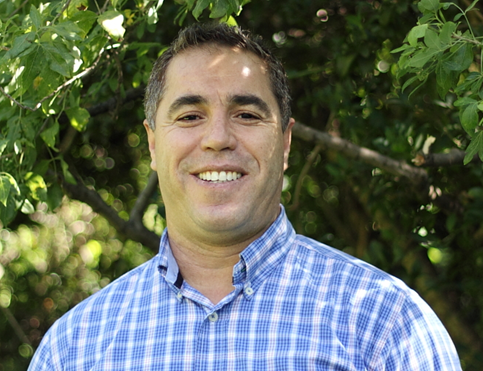
I am a mathematician by training; my expertise area lies in the area of stability and bifurcation theory of delayed (and ordinary) differential equations as well as difference equations and discrete systems. My research interests extend to optimal control, asymptotic behaviour and perturbation theory. My current research interests primarily focus on the application of these equations in the mathematical modelling and analysis of the transmission dynamics of communicable diseases, such as HIV, tuberculosis, malaria and trypanosomiasis, and non-communicable diseases such as cancer.
The mathematical models used in my research tie to experiments in some way involving cross-disciplines collaborations, which are essential for continued and improved research in this field. By their nature, such models are dynamic and highly nonlinear, their inherent complexity require a wide variety of approaches ranging from strong mathematical techniques to sound numerical and sensitivity analyses. To understand their behaviour, I draw on several areas of mathematics, from stability and bifurcation theory to asymptotic behaviour and perturbation theory as well as optimal control theory. For model validation and projection, I rely mostly on parameter optimisation techniques and (local and global) sensitivity analysis.
Prof Stephanie Portet
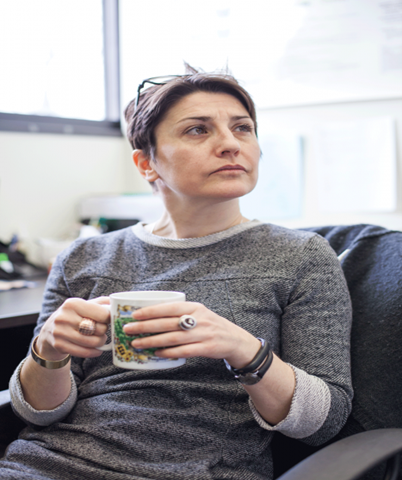
Stephanie Portet is a biomathematician in the Department of Mathematics of the University of Manitoba since 2005. Stephanie Portet was promoted to Full Professor in 2019. Since early in her career, she has worked on cellular processes and the cytoskeleton, and has specialized on the study of intermediate filaments (IF). After defending her PhD in Mathematical Biology in 2001 (Paris VII), she had a postdoctoral fellowship in the Department of Physics at the University of Alberta (Edmonton, Canada), where she broadened her background in Biophysics. From 2003 to 2005, she had a second 2-year postdoctoral fellowship with the Samuel Lunenfeld Institute at the Mount Sinai Hospital in Toronto (Canada), where she gained expertise in Bioinformatics.
The long-term goal of Stephanie Portet’s research is to characterize the regulation of spatio-temporal dynamics of IF in cells, using mathematical and computational frameworks in collaboration with experimentalists, to provide explanatory and predictive models of these complex processes. Defects in IF proteins organization in cells are linked to cytopathological signatures of diseases such as skin fragility and neurodegenerative diseases. An analytical (computational and mathematical) framework is necessary to analyze and characterize the interplay of complex processes of filament assembly, network organization and transport; such a framework allows to test and compare a variety of hypotheses about the mechanisms considered.
Prof Nikolaos Sfakianakis

I am an Applied Mathematician working in the field of Mathematical Biologist in the school of Mathematics and Statistics in the University of St Andrews. I did my PhD in the University of Crete, Greece and then held positions in Ecole Normale Superieure in Paris, France, the University of Vienna, Austrian and Heidelberg University. Germany. I am lifelong fellow of the Alexander von Humdoldt Foundation, the European Society of Mathematical and Theoretical Biology, and the Edinburgh Mathematical Society.
My research interests encompass a range of topics spanning from cytoskeleton dynamics and their implications for cell migration through to the intricate complexities of cancer growth and metastasis. I rely primarily on rigorous mathematical modeling and numerical analysis, although mathematical analysis is never too far away from my work. The tools I employ are primarily Partial- and Stochastic-Differential Equations and a wide range of numerical techniques to solve them.
Prof James Watmough

James Watmough received his PhD in 1997 from the University of British Columbia's Department of Mathematics and Institute of Applied Mathematics under the supervision of Professor Leah Edelstein-Keshet. He then studied under Professor John Tyson at Virginia Tech and Professor Pauline van den Driessche at the University of Victoria. He is currently a Professor at the University of New Brunswick and director of the Atlantic node of the Centre for Disease-Modelling. His research interests centre on mathematical and theoretical aspects of the response of ecological systems to disturbances.


